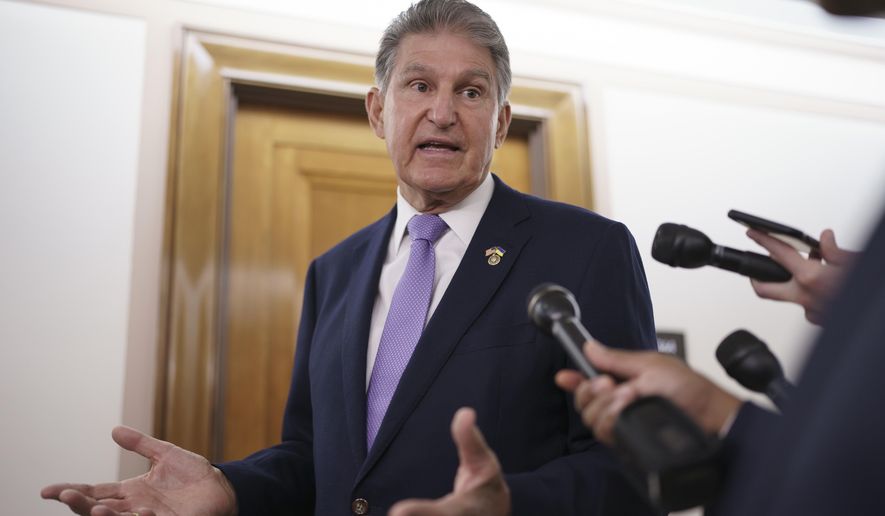OPINION:
Democrats have been busy duking it out over the latest iteration of a party-line reconciliation package. Sen. Joe Manchin has successfully forced Democrats to shrink the size and scope of the bill to a fraction of the original Build Back Better behemoth. On Wednesday afternoon, a deal was abruptly announced in the form of the Inflation Reduction Act of 2022. But what’s left is still a raw deal for Americans.
Among a slew of provisions, Democrats argue health care elements of the bill will lower prescription drug prices. But the devil is in the details.
As it currently stands, the legislation will squeeze drugmakers with the tight fist of government to prop-up Obamacare. Insurance premiums for those on the exchanges are set to more than double come 2023. Democrats need more taxpayer dollars to keep up the charade that Obamacare is working on, rather than pursuing a cocktail of price transparency and competition that will address the underlying problem.
Their Band-Aid money-saving ploy is to apply government price controls on medicine accessed through Medicare. Proponents misleadingly call the policy “price negotiations.” But as The Wall Street Journal editorial board put it, “There is no negotiation when the government points a gun at your head.”
What happens when drugmakers disagree with the government’s “negotiated” price of a product? The government will apply a 95% excise tax on their sales. It’s a deal that producers can’t refuse.
The government price-setting scheme will have major unintended consequences for patients.
As medicine is sold at below market value through Medicare, research and development budgets at pharmaceutical companies will shrink — leading to fewer life-saving treatments, therapeutics and vaccines becoming available. On average, it takes more than $1 billion in up-front investment to bring a new drug to market — and not every product makes it to the pharmacy counter. In fact, most don’t. But healthy research and development budgets are still needed to find the proverbial needle in a haystack.
In addition to compromising innovation, the domino effect of the Democrats’ proposal could actually increase the price of medicine. Discouraging the development of generic drugs will leave patients with no other choice but brand-name versions. It’s also important to note that the government price controls won’t apply to privately insured patients. So it’s likely that prices will rise more broadly to recoup revenue lost because of the government swindle.
This isn’t to say that prescription drug prices shouldn’t be a priority for lawmakers. Spending on pharmaceuticals in the U.S. has nearly tripled since the year 2000.
But instead of dismantling the free market, officials should shine a spotlight on the middlemen of the drug supply chain that are largely responsible for ballooning costs. It’s estimated these middlemen — called Pharmacy Benefit Managers — leverage their position to suck up nearly $200 billion a year in the form of rebates from the supply chain. That’s money that should be going to patients as savings.
The reconciliation package conveniently turns a blind eye to these middlemen gaming the system. The bill would permanently nix Trump-era executive action that would have forced PBMs to pass along the rebates as savings to seniors at the pharmacy counter. It just goes to show the legislation is a political ploy. They aren’t serious about tackling prescription drug prices.
Mr. Manchin has paralyzed Democrats on Capitol Hill for months. Now it seems they’ll agree to pass anything to achieve a ‘win’ before the midterm elections — even if it’s a raw deal for their constituents.
• Elaine Parker is the president of the Job Creators Network Foundation.




Please read our comment policy before commenting.